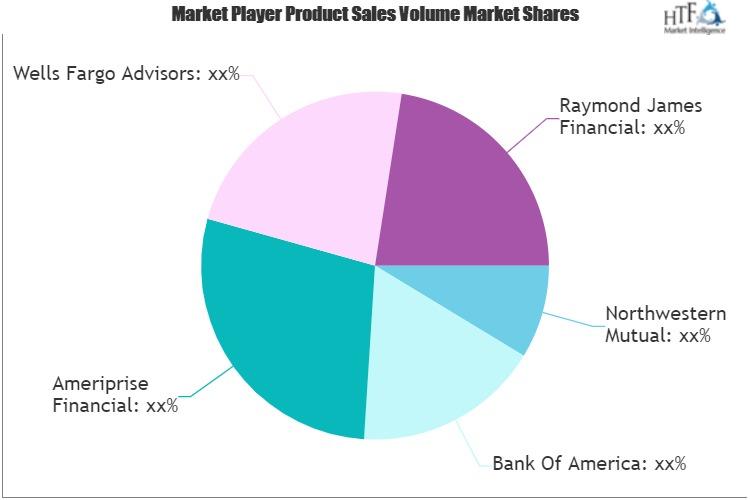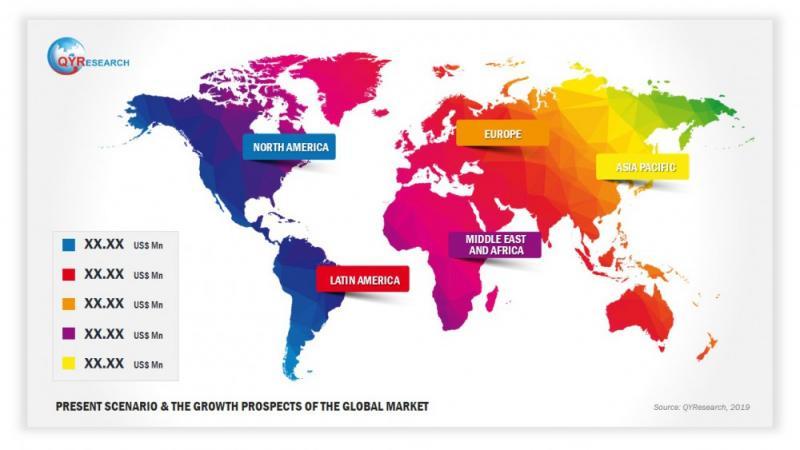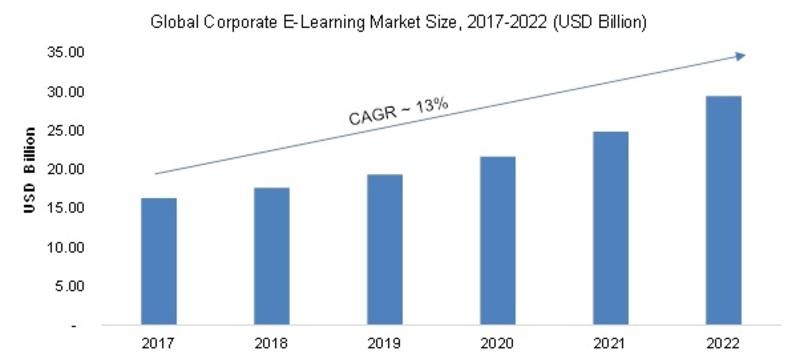Press release
Plant-based Milk Market to Reach a Value of ~ US$ 30 Bn by 2029
A latest market forecast report published by Transparency Market Research on the plant-based milk market includes the global industry analysis and opportunity assessment for 2019-2029. Revenue generated from the global plant-based milk market has been estimated to be valued at ~ US$ 14 Bn in 2019, and is projected to increase at a CAGR of ~ 8%, to reach ~ US$ 30 Bn by 2029.
Read Report Overview: https://www.transparencymarketresearch.com/plant-based-milk-market.html
Vegans & Vegetarians Demand Plant-based Milk and Milk Products
Consumers are becoming more sensitive and sympathetic towards animals, due to the conditions and environment in which they are raised and harvested. Animal welfare is one of the primary reasons for consumers opting for plant-based products, such as plant-based milk and other non-dairy alternatives.
According to the People for the Ethical Treatment of Animals organization (PETA), cows undergo genetic manipulation, and are treated with antibiotics and bovine growth hormones (BGH) so that they produce more than 18,000 pounds of milk a year (National Agriculture Statistics Service, 2004 Feb 17, “Milk Production” – The U.S. Department of Agriculture). The hormones used to increase the productivity and efficiency of cows adversely affect their health and surge the rate of congenital disabilities in their offspring.
Consumers are choosing safer plant-based milk due to rising food safety concerns related to the usage of hormones and different types of antibiotics in dairy-based products. Also, the number of people suffering from food-borne allergies and intolerances has led to the shift of consumer preference towards plant-based alternatives.
Request A Sample of Plant-based Milk Market: https://www.transparencymarketresearch.com/sample/sample.php?flag=S&rep_id=32642
Rising Prevalence of Dietary Restrictions Boosting Plant-based Milk Market
Today’s population is adopting a preventive diet that emphasizes on the greater consumption of plant-based products. While intolerance (e.g., lactose intolerance) or food allergies determines some of these diets, others such as flexitarian diets and the Paleo diet are chosen by consumers who aim to achieve superior well-being.
According to the National Center for Biotechnology Information (NCBI), in 2012, around 65% of the total human population was lactose intolerant, and in 2016, it reached 74%.
Increasing gastrointestinal Problems Have Increased the Demand for Plant-based Milk and Plant-derived Probiotics
Growing functional disorders and organic gastrointestinal diseases are resulting in an increasing population that is suffering from improper gut health. The ever-increasing necessity to improve gut health has resulted in the consumption of probiotics that promote gut health, along with the consumption of plant-based milk. Plant-based milk is increasing in popularity due to its digestive and immune benefits, which help in preventing urinary and vaginal infections, and obesity.
Consciousness and alertness regarding the consumption of food products are currently moving to the idea of deep-rooted clearness. With improving technology, consumers now have access to smart labels, with the help of which, they can trail the journey of a food product and check against its individual potential. Consumers are nowadays compelling the food companies to increase the clearness of their products, going beyond ingredients, free-from status, and nutritional value. This is determined by the buyer’s continuously increasing demand to comprehend the product-related questions that they have in mind, such as from where and how the ingredients were obtained, till the end product.
In 2016, according to the International Food Information Council (IFIC), 38% of the American population named ‘chemicals’, as in, the presence of too much chemicals as their top food safety concern. This proves that, a majority of the North American people no longer believes in chemicals and uncommon sounding ingredients in their food.
According to Ingredion, a leading global ingredients solutions company, around 80% of consumers, globally, feel that it is important that they recognize all the ingredients listed on their food and drink packaging. A global survey conducted across 17 countries indicated that, consumers assume that, a brief and modest ingredient list is important; Chinese customers were ranked 4th most probable to read ingredient lists.
Health And Wellness Consciousness Driving Demand for Plant-based Milk
Consumers, irrespective of age, are seeing food and beverages as a primary path leading towards health and wellness. Plant-based beverages are rich in nutrients, and have no added flavor or additives, which helps in maintaining body weight, cholesterol, and blood pressure levels, and aids in preventing ailments such as cardiovascular diseases and obesity.
Big Names Investing in Smaller Plant-based Brands and Companies
The recent rush of big food companies obtaining or investing in smaller, independent brands is driving the push for the mainstream acceptance of plant-based milk. Danone, a leading food and beverage company, investing US$ 30 million in U.S. coconut water brand Harmless Harvest, and Coca-Cola Company acquiring Unilever’s AdeS plant-based beverage business, are examples of a few of the strategic moves that big companies have made to tap into the plant-based milk market.
Tedious Process of Regulatory Approval in the Plant-based Milk Market
Plant based products, including plant-based milk are facing legal and regulatory restraints, which may result in the declining popularity of plant-based milk products. Plant based milk is facing legal and regulatory inspection as industry associations prevent manufacturers from using labels and terms that consumers find more relative. For instance, in 2017, The European Court of Justice ruled that, plant-based milk and other plant-based items can’t be described using dairy terms, like milk, even though their plant-based origins are marked. In the same year, in the United States, a bill titled the ‘Dairy Pride Act’ was presented in the Senate, to prevent plant-based food manufacturers from using dairy names or terms. The Senate Committee has still not approved the bill. However, the dairy business is pushing hard to get the bill passed. Coming up with terms that resound with customers without aggravating trade groups will go far toward enabling the acceptance of plant-based foods.
Contact
Transparency Market Research
90 State Street, Suite 700
Albany, NY 12207
Tel: +1-518-618-1030
USA - Canada Toll Free: 866-552-3453
Email: sales@transparencymarketresearch.com
Website: http://www.transparencymarketresearch.com
About Us
Transparency Market Research (TMR) is a global market intelligence company providing business information reports and services. The company’s exclusive blend of quantitative forecasting and trend analysis provides forward-looking insight for thousands of decision makers. TMR’s experienced team of analysts, researchers, and consultants use proprietary data sources and various tools and techniques to gather and analyze information.
Read Report Overview: https://www.transparencymarketresearch.com/plant-based-milk-market.html
Vegans & Vegetarians Demand Plant-based Milk and Milk Products
Consumers are becoming more sensitive and sympathetic towards animals, due to the conditions and environment in which they are raised and harvested. Animal welfare is one of the primary reasons for consumers opting for plant-based products, such as plant-based milk and other non-dairy alternatives.
According to the People for the Ethical Treatment of Animals organization (PETA), cows undergo genetic manipulation, and are treated with antibiotics and bovine growth hormones (BGH) so that they produce more than 18,000 pounds of milk a year (National Agriculture Statistics Service, 2004 Feb 17, “Milk Production” – The U.S. Department of Agriculture). The hormones used to increase the productivity and efficiency of cows adversely affect their health and surge the rate of congenital disabilities in their offspring.
Consumers are choosing safer plant-based milk due to rising food safety concerns related to the usage of hormones and different types of antibiotics in dairy-based products. Also, the number of people suffering from food-borne allergies and intolerances has led to the shift of consumer preference towards plant-based alternatives.
Request A Sample of Plant-based Milk Market: https://www.transparencymarketresearch.com/sample/sample.php?flag=S&rep_id=32642
Rising Prevalence of Dietary Restrictions Boosting Plant-based Milk Market
Today’s population is adopting a preventive diet that emphasizes on the greater consumption of plant-based products. While intolerance (e.g., lactose intolerance) or food allergies determines some of these diets, others such as flexitarian diets and the Paleo diet are chosen by consumers who aim to achieve superior well-being.
According to the National Center for Biotechnology Information (NCBI), in 2012, around 65% of the total human population was lactose intolerant, and in 2016, it reached 74%.
Increasing gastrointestinal Problems Have Increased the Demand for Plant-based Milk and Plant-derived Probiotics
Growing functional disorders and organic gastrointestinal diseases are resulting in an increasing population that is suffering from improper gut health. The ever-increasing necessity to improve gut health has resulted in the consumption of probiotics that promote gut health, along with the consumption of plant-based milk. Plant-based milk is increasing in popularity due to its digestive and immune benefits, which help in preventing urinary and vaginal infections, and obesity.
Consciousness and alertness regarding the consumption of food products are currently moving to the idea of deep-rooted clearness. With improving technology, consumers now have access to smart labels, with the help of which, they can trail the journey of a food product and check against its individual potential. Consumers are nowadays compelling the food companies to increase the clearness of their products, going beyond ingredients, free-from status, and nutritional value. This is determined by the buyer’s continuously increasing demand to comprehend the product-related questions that they have in mind, such as from where and how the ingredients were obtained, till the end product.
In 2016, according to the International Food Information Council (IFIC), 38% of the American population named ‘chemicals’, as in, the presence of too much chemicals as their top food safety concern. This proves that, a majority of the North American people no longer believes in chemicals and uncommon sounding ingredients in their food.
According to Ingredion, a leading global ingredients solutions company, around 80% of consumers, globally, feel that it is important that they recognize all the ingredients listed on their food and drink packaging. A global survey conducted across 17 countries indicated that, consumers assume that, a brief and modest ingredient list is important; Chinese customers were ranked 4th most probable to read ingredient lists.
Health And Wellness Consciousness Driving Demand for Plant-based Milk
Consumers, irrespective of age, are seeing food and beverages as a primary path leading towards health and wellness. Plant-based beverages are rich in nutrients, and have no added flavor or additives, which helps in maintaining body weight, cholesterol, and blood pressure levels, and aids in preventing ailments such as cardiovascular diseases and obesity.
Big Names Investing in Smaller Plant-based Brands and Companies
The recent rush of big food companies obtaining or investing in smaller, independent brands is driving the push for the mainstream acceptance of plant-based milk. Danone, a leading food and beverage company, investing US$ 30 million in U.S. coconut water brand Harmless Harvest, and Coca-Cola Company acquiring Unilever’s AdeS plant-based beverage business, are examples of a few of the strategic moves that big companies have made to tap into the plant-based milk market.
Tedious Process of Regulatory Approval in the Plant-based Milk Market
Plant based products, including plant-based milk are facing legal and regulatory restraints, which may result in the declining popularity of plant-based milk products. Plant based milk is facing legal and regulatory inspection as industry associations prevent manufacturers from using labels and terms that consumers find more relative. For instance, in 2017, The European Court of Justice ruled that, plant-based milk and other plant-based items can’t be described using dairy terms, like milk, even though their plant-based origins are marked. In the same year, in the United States, a bill titled the ‘Dairy Pride Act’ was presented in the Senate, to prevent plant-based food manufacturers from using dairy names or terms. The Senate Committee has still not approved the bill. However, the dairy business is pushing hard to get the bill passed. Coming up with terms that resound with customers without aggravating trade groups will go far toward enabling the acceptance of plant-based foods.
Contact
Transparency Market Research
90 State Street, Suite 700
Albany, NY 12207
Tel: +1-518-618-1030
USA - Canada Toll Free: 866-552-3453
Email: sales@transparencymarketresearch.com
Website: http://www.transparencymarketresearch.com
About Us
Transparency Market Research (TMR) is a global market intelligence company providing business information reports and services. The company’s exclusive blend of quantitative forecasting and trend analysis provides forward-looking insight for thousands of decision makers. TMR’s experienced team of analysts, researchers, and consultants use proprietary data sources and various tools and techniques to gather and analyze information.
Permanent link to this press release:
Copy
Please set a link in the press area of your homepage
to this press release on woodPRI. woodPRI disclaims liability for any content contained in
this release.
Recommend

/newsMicroencapsulation Market Deep Analysis on Key Players - Dow Corning, Encapsys, Syngenta Crop Protection, Evonik Industries, 3M and Bayer
Market Study Report Adds Global Microencapsulation Market Size, Status and Forecast 2024 added to its database. The report provides key statistics on the current state of the industry and other analytical data to understand the market.
Extensive research is required for choosing the appropriate cor...

/newsGermany Airbag Market Size 2023: Global Share, Industry And Report Analysis By 2030 | Hyundai Mobis Co., Ltd. Key Safety Systems, Inc. Robert Bosch GmbH
Germany airbag market is expected to grow at a CAGR of around 6% during the forecast period. Germany Airbag Market research report refers to gathering and analyzing significant market data serve as best medium for various industry players to launch novel product or service. It is vital for key firms...

/newsSecurities Brokerages And Stock Exchanges Market Outlook 2021: Big Things are Happening
A new intelligence report released by HTF MI with title "Global Securities Brokerages And Stock Exchanges Market Survey & Outlook" is designed covering micro level of analysis by Insurers and key business segments, offerings and sales channels. The Global Securities Brokerages And Stock Exchange...

/newsRenewable Chemicals Market Emerging Trends and Competitive Landscape Forecast to 2028
The renewable chemicals market was valued at US$ 80,566.30 million in 2021 and is projected to reach US$ 1,76,750.76 million by 2028 it is expected to grow at a CAGR of 11.9% from 2021 to 2028. The research report focuses on the current market trends, opportunities, future potential of the market, a...

/newsHow Coronavirus is Impacting Cold Brew Coffee, Global Market Volume Analysis, Size, Share and Key Trends 2020-2026
"Market Latest Research Report 2020:
Los Angles United States, February 2020: The Cold Brew Coffee market has been garnering remarkable momentum in the recent years. The steadily escalating demand due to improving purchasing power is projected to bode well for the global market. QY Research's lates...

/newsCorporate E-Learning Market - Global Industry Size, Share, Key Players Analysis that are Infor, SkillSoft Corporation, Adrenna, CERTPOINT Systems and others with Regional Forecast to 2022
Overview:
E-Learning is used to enhance the learning procedures for newer job requirements and to make employees sound about the internal and external changes in the market and respective organizations. This method has created considerable differences in the ways of training and developing employee...